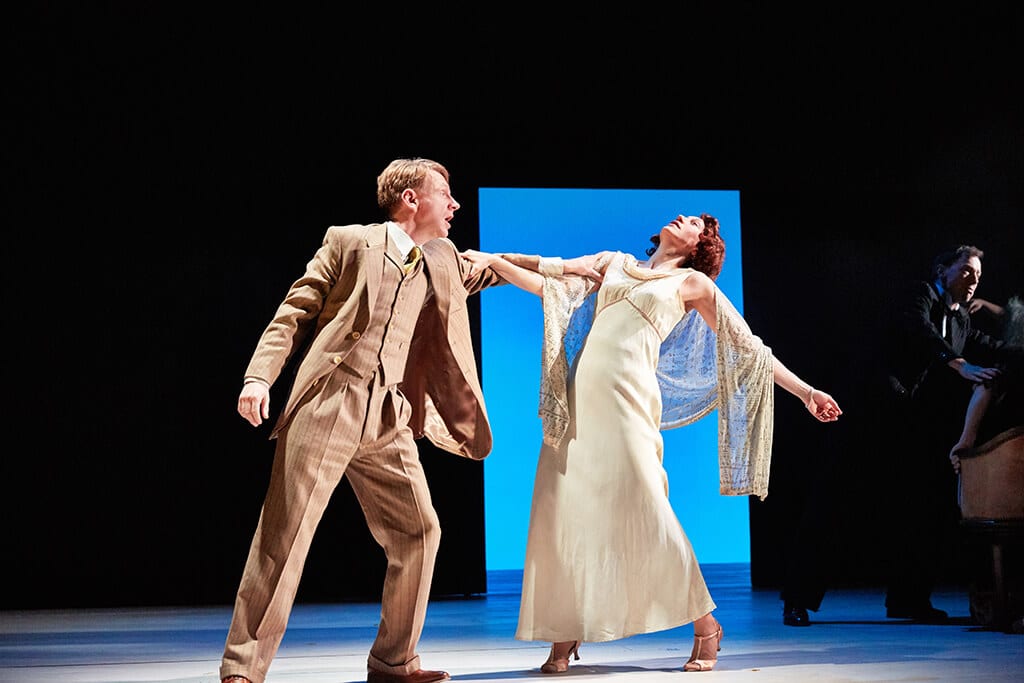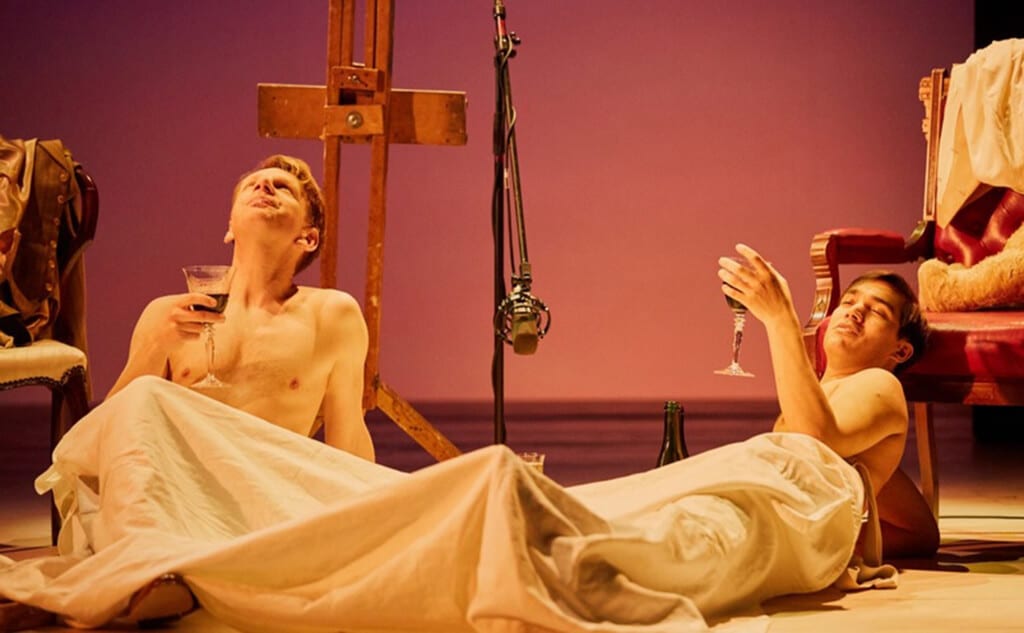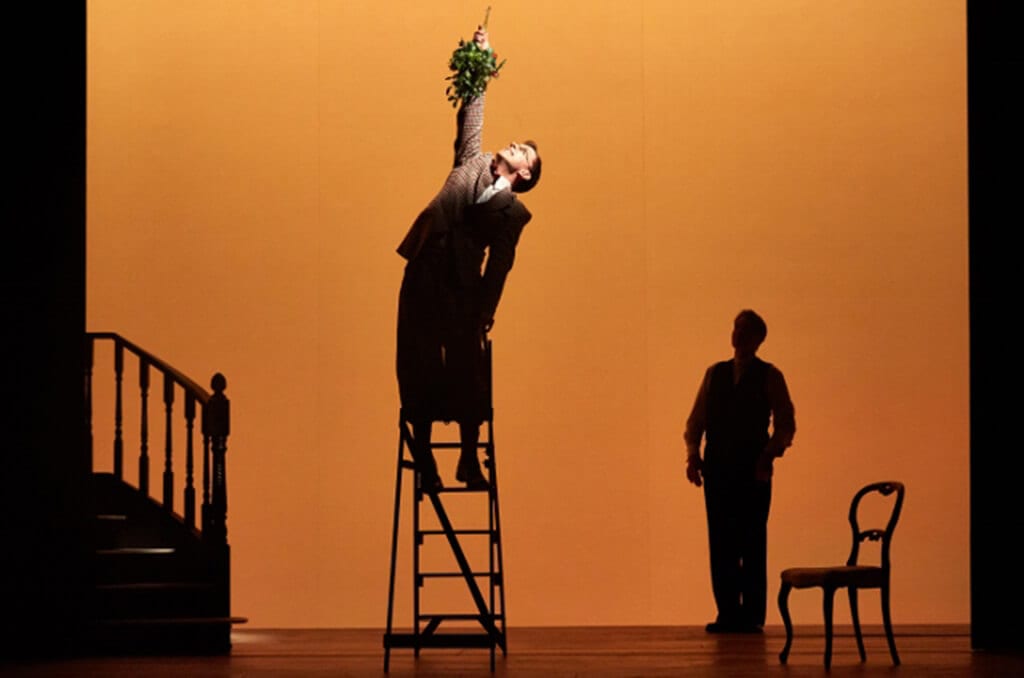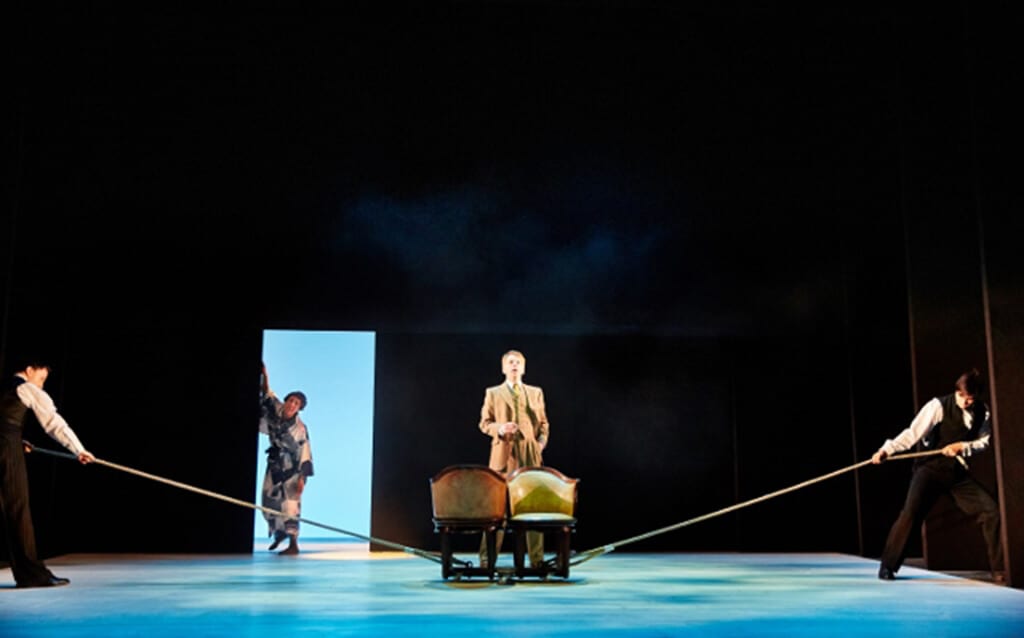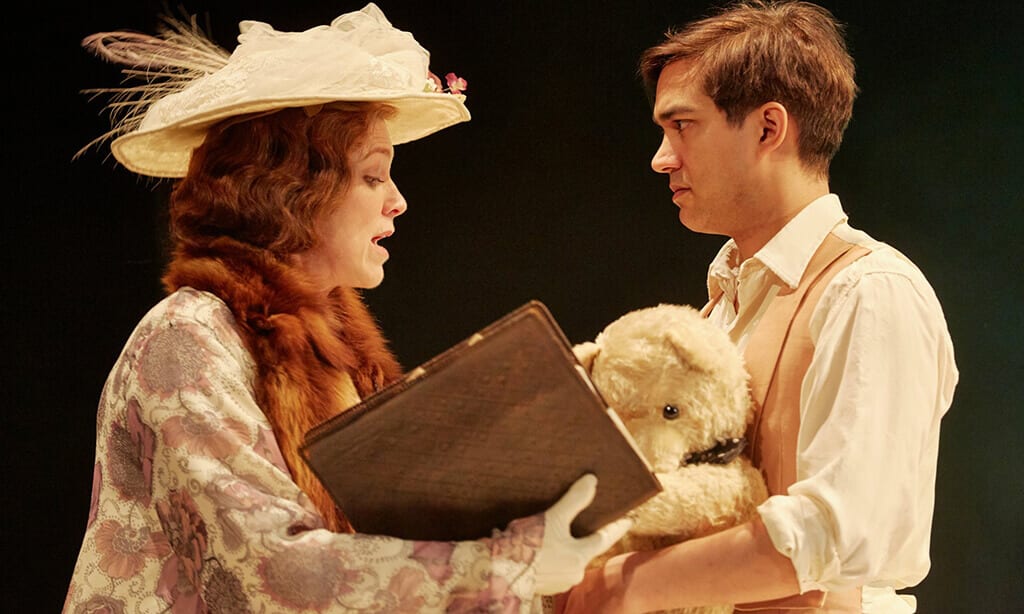I‘m going to start by saying that this production was exactly what I wanted. I absolutely adore Evelyn Waugh’s Brideshead Revisited as it is so rich, so full of things to ponder over afterwards, and yet such an indigestible whirlwind. The reader is left with a sense that perhaps nothing in Ryder’s letters actually ever occurred in the ‘reality’ of the characters’ world: a moreish, gelatinous dream. The novel oozes social and religious critique, nostalgia theory and the superficiality of ‘charm’ – the so-called “English blight”, which perhaps seems more contemporaneous a point than ever, thinking about a certain recent referendum result…
Richmond’s adaptation satiated my Waugh-mega-fan persona because it didn’t really change anything from the novel at all, in fact it was so true to the novel, even lifting lines directly from it, that it slightly felt like watching a really well-acted audiobook.
Christopher Simpson’s Sebastian was the perfect embodiment of flamboyant rebellion, a son broken by his simultaneously harsh yet smothering mother. Brian Ferguson’s Charles was as generally dissatisfied and disassociated with the world around him as I found in the novel. Rosie Hilal’s Julia was perhaps less flippant and alluring than I imagined her to be, but portrayed her discomfort with the war between her faith and her pursuit of happiness extremely well.
I was particularly impressed with many aspects of the set and visual effects in this production. The use of black wooden boards at the back of the stage which moved to shape windows, confession booths and university halls in a multitude of set locations was ingenious. The simple pulling of a loveseat backwards and forwards along the ground was also a lovely way to imitate a scene on an unstable boat, without distracting too much from Julia and Charles’ much belated tryst.
I thought the subtle nod to the era with the use of new media as set devices was an interesting addition. A microphone was brought out on several occasions to indicate that someone was telling their story, or even to aggrandise ‘conversations’ to ‘interviews’. The Marchmains also posed as if being photographed together when other characters were describing their family relationship, which really helped to emphasise this idea that the external charm one sees is often very different from the reality.
Overall, I was very impressed with the acting and production of Brideshead at Richmond, and I would definitely recommend it to a friend. However, I do feel that perhaps more could have been done with the adaptation element of the play – it was so true to the novel that as a reader, I felt a little surprised that nothing had changed. The creativity of adaptation is a modern phenomenon that I think Bryony Lovery and Damian Cruden just haven’t cottoned onto yet.

